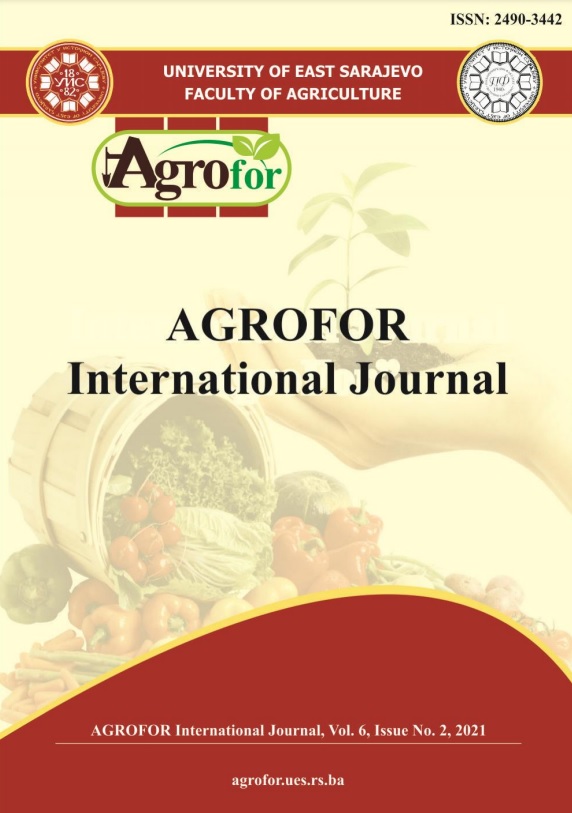EFFECT OF STATE SUBSIDIES GRANTED TO FARMERS FOR CERTIFIED SEEDS ON WHEAT YIELD IN TURKEY
DOI:
https://doi.org/10.7251/AGRENG2102035CAbstract
Wheat grown in many regions in the world and in Turkey; It is an important plant in terms of its large producer mass and being the basic food of people. Wheat is an important nutritional raw material because it ranks first in consumption of foodstuffs made from wheat in Turkey. Wheat takes the first place with a rate of 69% among the total grain cultivation areas in our country. Farmers in Turkey have been subsidized to use certified seeds since 2004. However, studies to determine the effect of certified seed subsidies given to farmers are limited. In this study, the effect of the use of certified seeds on wheat yield, quality, and production cost was investigated. Study data were collected from 318 farmers. The survey was carried out between October and November 2018. In the selection of sample villages, the purposive-sampling method was used. The yield following the use of certified seeds regarding wheat production in dry areas increased by 41.4%, and in irrigated areas by 23.8%. With this increase, $130.24 per hectare more in dry areas and $79.64 more in irrigated areas were obtained. However, it was determined that the production costs in wheat production decreased by $10.64 per hectare in dry and by $11.78 in irrigated areas. It was concluded that certified-wheat-seed support increased wheat production in dry areas more than in irrigated areas. In addition, it was found that it contributed to the reduction of the cost of wheat production and the improvement of wheat quality.
Keywords: agricultural policy, farmer preferences, profitability, wheat productivity.

